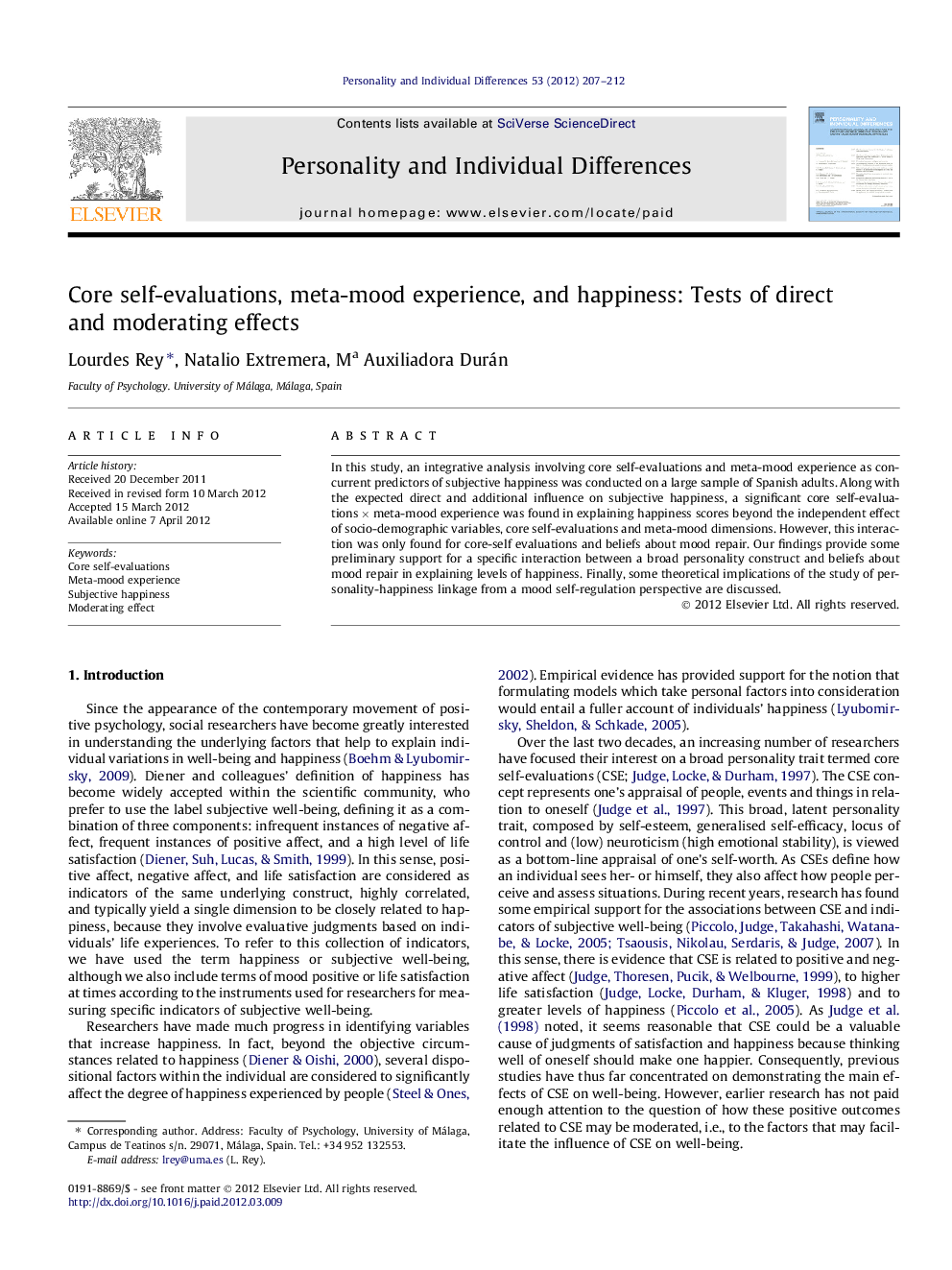| Article ID | Journal | Published Year | Pages | File Type |
|---|---|---|---|---|
| 891001 | Personality and Individual Differences | 2012 | 6 Pages |
In this study, an integrative analysis involving core self-evaluations and meta-mood experience as concurrent predictors of subjective happiness was conducted on a large sample of Spanish adults. Along with the expected direct and additional influence on subjective happiness, a significant core self-evaluations × meta-mood experience was found in explaining happiness scores beyond the independent effect of socio-demographic variables, core self-evaluations and meta-mood dimensions. However, this interaction was only found for core-self evaluations and beliefs about mood repair. Our findings provide some preliminary support for a specific interaction between a broad personality construct and beliefs about mood repair in explaining levels of happiness. Finally, some theoretical implications of the study of personality-happiness linkage from a mood self-regulation perspective are discussed.
► We examined core self-evaluations and meta-mood as predictors of happiness. ► Core self-evaluations and meta-mood predicted higher levels of happiness. ► Mood repair moderated links between core-self evaluations and happiness. ► Our findings support a personality-mood repair interaction for predicting happiness.
